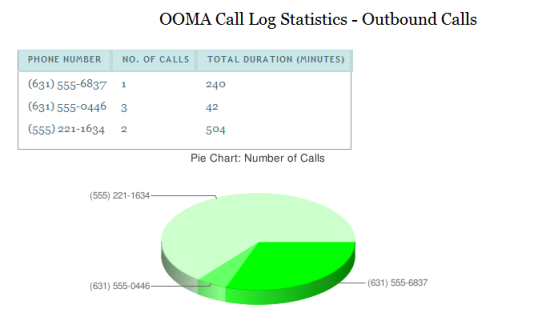In my last article (part 1) I described the OOMA Logger application that I had running on my development machine, and I promised to make it available by deploying it to Heroku which is a cool service for deploying web based Ruby apps. The application is now live at http://oomalogger.heroku.com (nice name right!)
First off, I ran in to a couple of unforeseen problems like the fact that heroku apps are for all intents and purposes read-only (which meant for example, that I had to figure out the Nokogiri parsing problem and not use the file-system work-around hack that I had come up with).
The app is currently working with a DEMO mode and also with a 'live' mode. Currently it reads the most recent records (up to 100) from the OOMA call log for reporting. Future versions will include a configuration/options page to allow better call-log record selection say by a particular month or range of dates etc. The records are limited to 100 in this version to minimize timeouts from the Heroku hosting environment as I get a better handle on performance the record counts should increase.
My immediate goals for this application have been met: I.e create a non-trivial Ruby web application to apply some of the core Ruby programming concepts.
In order to use the application you have to provide your OOMA userid and password so that it can retrieve your OOMA call log data - I'm not saving your userid, password or data but if you are leery about providing it you can run the app in demo mode although there is probably not a lot of sense in doing that, or you could change your password once you've used the site. Have Fun!
